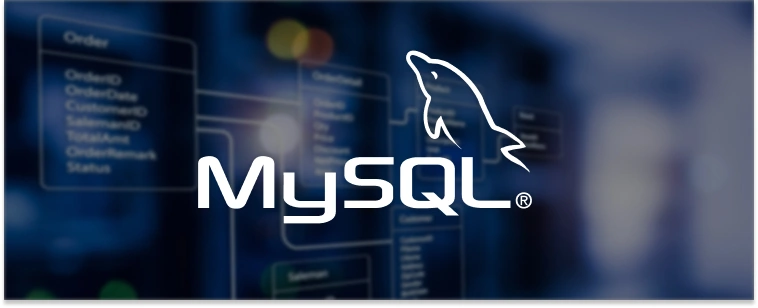What is MariaDB vs MySQL?

A database is essential for organizing and storing data when building a website, and two of the most commonly used databases are MariaDB and MySQL. Although MariaDB and MySQL share a similar framework, they differ in features and components. With a shared history, MariaDB and MySQL are two of the most commonly used open-source relational databases worldwide.
They have developed independently, developing into distinct databases with distinctive characteristics They have developed independently, developing into distinct databases with distinctive characteristics and various product ideologies. Understanding the best relational database management systems to use will help you improve the efficiency of your web applications. The advantages and disadvantages of each database will be discussed as we compare MariaDB vs. MySQL, making it easier for you to choose the database and database server hosting solution that suits you best.

What is MySQL?
MySQL is an open-source relational database management system (RDBMS) built on Structured Query Language (SQL). MySQL makes it easier for web developers to maintain data organization in a database. It runs on top of a Linux distribution and uses the PHP and Apache Web Server combo. MySQL is ranked second among the relational databases and second overall (Oracle database being first).
Oracle Corporation is responsible for its development and management and was released on May 23, 1995. It can manage a significant amount of data and is extensively applied in various small and large-scale industries. MySQL is compatible with PHP, Apache web servers, and Linux distributions. MySQL is also customizable using SQL.
There are numerous MySQL alternatives available in the present day. However, because they have the same structure and fundamental operation, the variations’ differences are not particularly noteworthy. MySQL partnered with companies like IBM, Zapier, Amazon Web Services, Microsoft, and Hewlett Packard Enterprise. Organizations that use MySQL include Spotify, NASA, Netflix, YouTube, and GitHub.
Advantages of using MySQL
MySQL offers many benefits to its users. They include:
- Unlike other relational database management systems, which only offer one storage engine, MySQL supports more than one memory storage engine, each with its own key differences and requirements.
- When compared to other relational database systems, MySQL performs exceptionally well. This is because it supports different storage engines and has a simple architecture.
Features of MySQL
Some of the features of MySQL include:
- Robust transactional support
- High performance
- High availability
- Scalability and flexibility
- Web and Data Warehouse Strengths

What is MariaDB?
MariaDB is an open-source relational database management system (RDBMS) that works seamlessly to replace MySQL database technology. It was first released on October 29, 2009, by the MariaDB Foundation. Due to its many advanced functionalities, MariaDB outperforms MySQL in terms of user-friendliness and performance.
The database management system MariaDB is a derivative of MySQL. The MariaDBMS can process data for both small-scale and large-scale operations. When comparing MariaDB vs MySQL, MariaDB is more advanced version of MySQL. It already has many advanced features and usability, security, and performance enhancements that MySQL does not have. To retain MySQL’s structure and functionality, the RDBMS was designed.
Each version of MariaDB is tested to ensure compatibility with the relevant MySQL version. Along with using the same client protocols, client APIs, ports, and sockets as MySQL, MariaDB also uses the same data and table definition files. This ensures that switching from MySQL to MariaDB is as simple as possible for MySQL users.
MariaDB may be customized using SQL statements, just like MySQL. Companies that use MariaDB include Wikipedia, CentOS, Google, and Verizon, and they partner with tech companies like Red Hat, SanDisk, Google Cloud, and Qualcomm.
Advantages of using MariaDB
Some of the benefits of using Maria DB include:
- It provides cutting-edge Galera cluster technology.
- MariaDB supports a widely used and accepted querying language.
- It is licensed under the GPL, BSD, or LGPL.
- MariaDB supports PHP, which is a common language for building websites.
- It has a wide variety of storage engines, including high-performance ones that may be combined with other relational database management systems.
Features of MariaDB
Some of the features of Maria DB include:
- Open-source Software
- New Storage Engine (PBXT, XtraDB, Maria, FederatedX)
- Percona Server (Based on MySQL Server, Other MySQL Fork Version)
- Offers Backward Compatibility
- It is based on the MySQL Community Version

Differences between MariaDB and MySQL
Before choosing a database management system, let’s look at the differences between MySQL and MariaDB in terms of their performance, compatibility, database views, etc. This will help you choose the database management system that best suits your demands.
- Performance Comparison
Compared to MySQL, MariaDB includes several optimizations that tend to boost performance. Performance-wise, MariaDB outperforms MySQL overall.
- Database Views
Database “views” have undergone significant performance enhancement. Virtual database tables known as “views” can be queried similarly to conventional database tables.
When you query a view in MySQL, any tables related to the view are also queried, even if the query doesn’t necessarily need all of them. In MariaDB, this has been streamlined such that queries only focus on the necessary tables.
- Virtual Columns
The fact that MariaDB allows virtual columns is another intriguing aspect. These columns are equipped to carry out database-level calculations. This saves time by eliminating the need to create the computation in each application when multiple applications access the same column. MySQL lacks this feature.
- Parallel Execution of Queries
Multiple queries may be executed simultaneously in MariaDB versions 10.0 and above. The theory is that parts of the master’s queries can be duplicated in the slave and then processed simultaneously. This parallelism in query processing gives MariaDB a distinct advantage over MySQL.
- Thread Pooling
The term “Thread Pooling” is a brand-new idea introduced by MariaDB. A new connection can pick up a pool of open threads created by “Thread Pooling” and query the database. This leads to speedier query results because a new thread does not need to be launched for each new connection request. The MySQL community edition does not have access to this feature, while the enterprise edition does.
- Storage Engines
In contrast to MySQL, MariaDB has several strong storage engines, like XtraDB, Aria, etc. These storage engines must be manually installed to be set up for MySQL, which may not be the most straightforward procedure.
- Open Source vs. Proprietary Database
Oracle oversees the MySQL project. The positive side is that it might result in enhanced security, more stable software, and personalized customer care. The release of new features, however, in such large enterprises takes a lot of time, which is a significant drawback.
Contrarily, MariaDB is entirely open-source, and they release new features and improvements quickly after accepting external contributions.
See also: How To Choose The Right Server To Host Your Database

Key Differences Between MySQL and MariaDB
| Features | MySQL | MariaDB |
| Initial release | 1995 | 2009 |
| Storage engines | Fewer storage engines than MariaDB | More storage engines |
| Server operating systems | FreeBSD, X, OS, Linux, Windows, Solaris | Windows, FreeBSD, Solaris, Linux, macOS |
| Speed Improvement | It has slower speed | It has improved speed than MySQL |
| Faster and larger connection pool | The thread pool cannot support up to 200,000 connections per time | The thread pool runs faster and can support over 200,000 connections per time. |
| Faster cache | Memory storage is slower | Memory storage is 24% faster than MySQL |
| Analytics | No analytics | ColumnStore |
| Data masking | There is data masking | No data masking |
| Priority code | It allows you to use some propriety code in its enterprise edition | It offers an alternate of open-source plugins |
| Routing | Router | MaxScale |
| Improved replication | MySQL community edition allows a certain number of threads to be connected, while the enterprise plan comes with thread capabilities | Replication is faster and safer. Also, update can be done faster than MySQL |
| Monitoring | Workbench | SQLyog |
| Forks | 1.6k | 868 |
| New Features | No new features | New features include KILL, JSON, and WITH statements. |
| Secondary database model | Document store | Graph DBMS and document store |
| Dynamic columns | There is a dynamic column | No dynamic column |
Major Drawbacks of using MySQL
The significant drawbacks of using MySQL include:
- MySQL cannot handle large sized data
- It is not easy to scale
- Triggers can place a heavy burden on the database server.
- Oracle owns it; thus, it comes with a lot of restrictions.
- It is Invisible from client applications
Major Drawbacks of using MariaDB
- The engine is still relatively new; thus, additional updates and versions are not guaranteed.
Conclusion
MariaDB and MySQL databases have strong features and functionalities helpful in building a website. However, you must know how to choose the right server to host your database. If you are looking for continual advancements, regular upgrades, and round-the-clock enterprise-level support, you should consider MySQL. MySQL also has the highest scalability, dependability, and security levels in its MySQL Enterprise Edition. However, if you are looking for quicker design and improvement, you should consider MariaDB.
At ServerMania, we offer a wide range of server solutions, including database server hosting. We can meet your needs whether you want to host your server in our data center, require your own powerful dedicated server, or need a server that suits your budget. Contact ServerMania to learn more about our products and services.
Was this page helpful?

